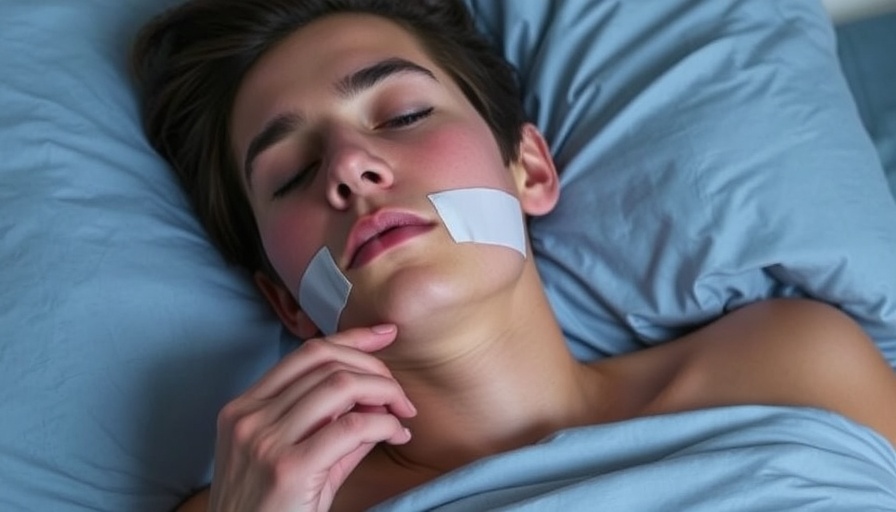
Unveiling the Benefits of Mouth Taping for Better Sleep
Mouth taping may sound odd, but it’s a simple technique that's gaining popularity in health and wellness communities. On the surface, this practice involves placing a small, skin-safe strip of tape over the lips before bed. But the ramifications for our health can go far beyond an unusual bedtime routine.
The Hidden Dangers of Mouth Breathing
Many people don’t realize that about 50% of the population habitually breathes through their mouths at night. While it might seem insignificant, mouth breathing is linked to several health issues. When oral breathing occurs, saliva production decreases, leading to dry mouth, cavities, and even halitosis. As saliva helps to balance mouth pH and prevents tooth decay, a reduction can make oral health precarious.
Moreover, improper breathing can affect facial development, particularly in children. When the tongue fails to rest against the roof of the mouth—a common occurrence in mouth breathers—it can lead to narrow palates and jaw misalignment. This improper position can also have cascading effects on hearing, vision, and speech development. As children grow, these issues can manifest into larger social and educational challenges, marking mouth breathing as a serious concern.
Addressing Tonsil and Airway Issues
Additionally, mouth breathing can exacerbate tonsil inflammation. The nose serves as the body's natural filter, preparing air for the lungs, while the tonsils take on this role when we bypass nasal breathing. This shift can lead to recurring tonsillitis and enlargements that create an uncomfortable cycle of mouth breathing.
Obstructed airways can also be a byproduct of poor tongue posture. This lack of proper airway function can result in daytime fatigue and attention issues, which are often misdiagnosed as ADHD. As we consider these impacts further, the question arises: could just one small shift, like mouth taping, alleviate these pervasive issues?
The Science Behind Mouth Taping
As I began my own journey with mouth taping, the initial awkwardness quickly dissipated as I began to experience its benefits firsthand. The underlying principle lies in encouraging nasal breathing, which promotes better oxygenation. Research shows that stabilizing the lips during sleep can help mitigate snoring and improve overall sleep quality.
In a world where wellness trends often focus on elaborate solutions, mouth taping emerges as an accessible yet effective practice. It shows that sometimes the simplest changes can yield profound benefits. For instance, reduced snoring is a significant win for many who struggle with disrupted sleep patterns.
A Holistic Approach to Sleep and Health
Mouth taping reflects a growing movement towards holistic health practices. As we become more conscious of how our daily habits affect our well-being, integrating simple methods like this into our routines can pave the way for better overall health. The practice not only enhances sleep quality but can improve your day-to-day performance, energy levels, and even your oral health.
Conclusion
So, if you're someone who often wakes up with a dry mouth or experiences irregular sleep patterns, mouth taping may be worth trying. It’s a small change with potentially life-changing effects. By returning to the basics of how we breathe, we can unlock a multitude of health benefits that ripple through our lives.
 Add Row
Add Row  Add
Add 



Write A Comment